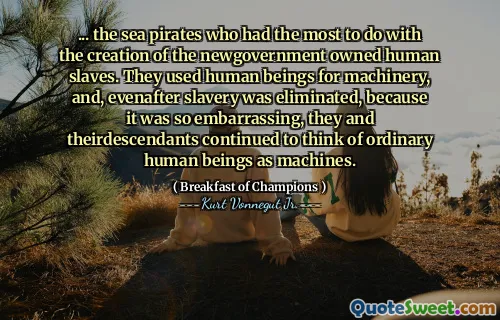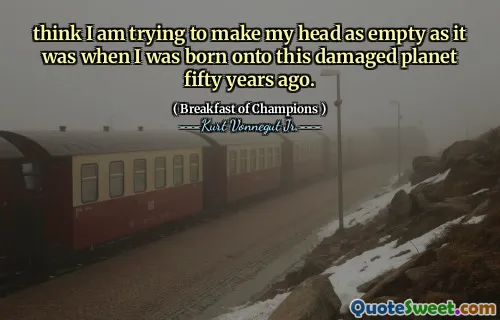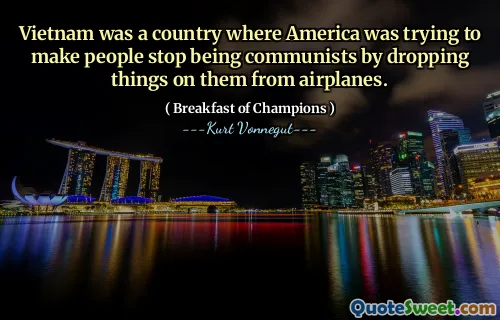
Vietnam was a country where America was trying to make people stop being communists by dropping things on them from airplanes.
This quote wields a stark and sobering tone in its blunt portrayal of the Vietnam War, a historical conflict marked by its complexity and profound consequences. Through this straightforward sentence, the essence of military intervention and its contradictions are laid bare. The quote distills the war to a grim image of violence and coercion, revealing the blunt instrumental approach taken by the U.S. in attempting to stem the spread of communism. It underscores the ironic cruelty of using mechanical devastation — ”dropping things on them from airplanes” — as a misguided means to achieve ideological conversion or suppression. Kurt Vonnegut’s typical satirical style isn’t directly evident here but judging by the source — "Breakfast of Champions" — it aligns with his approach to highlighting the absurdity of human conflict and the often irrational and dehumanizing nature of war.
The nature of this statement forces one to reflect on the enormity of war’s human toll and the ethical quagmire of using overwhelming force under geopolitical motives. It also signals the reality of many wars during the Cold War period, where ideological battles between communism and capitalism often resulted in tragedies far removed from clear victories or noble causes. This quote can evoke profound discomfort and challenge the romanticized narrative some might hold about wartime heroism or justice. Instead, it exposes a grim reality where civilian populations bore the brunt of powerful nations’ attempts at controlling political allegiance.
Furthermore, it encourages a critical examination of the means chosen to enforce ideology — the terrors inflicted on everyday people — and whether such actions ever lead to meaningful or just outcomes. In contemplating this statement, one is reminded of Vonnegut's broader oeuvre which often critiques human folly and the cyclical nature of violence and suffering. The quote’s simplicity invites deep consideration of not only what happened historically but also how societies rationalize and justify the infliction of pain in the name of ideology. Ultimately, it encourages empathy for those caught in the crossfire of ideological wars and urges skepticism toward simplistic narratives of good versus evil in global conflicts.








